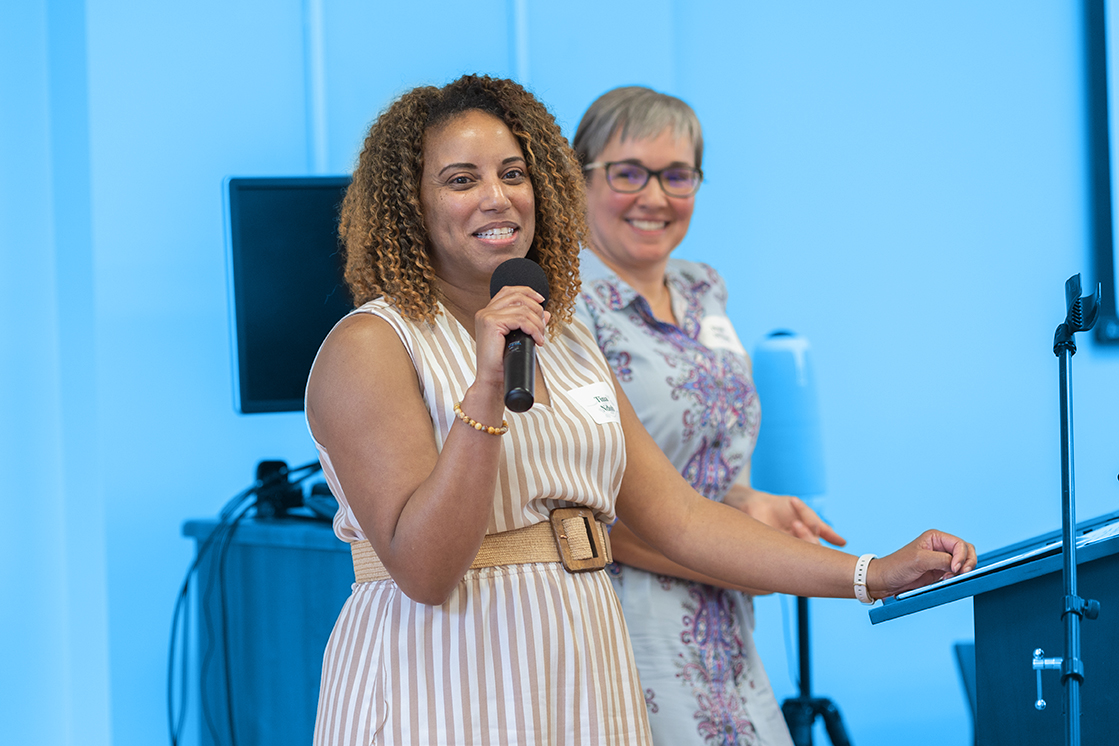
Tina Ndoh (left) and Dani Wilson (right)
Energized by the lessons of a three-day environmental justice summit the University of Pittsburgh cosponsored this spring, participants are putting what they learned into practice around Pittsburgh.
The event’s leaders were Tina Ndoh, associate professor of environmental and occupational health, School of Public Health, and Dani Wilson, executive director of the Cancer and Environment Network of Southwestern Pennsylvania.
Aimed at addressing unmet environmental health and healing needs, the summit forged community connections among affected communities, nonprofits, government and academia, Ndoh said.
With locations in Homewood, the Hill District, Hazelwood and Clairton, the event focused on Black communities and others disproportionately burdened by environmental toxins and hazards. Participants addressed health disparities tied to environmental factors that unduly affect people in lower-income neighborhoods, who are often people of color. These include air and water pollution, chemical waste, climate change and lead exposure, which are linked to higher rates of cancer, heart disease, asthma, depression and anxiety.
The event reinforced Pitt Health Sciences’ commitment to serving communities and working toward health equity.
Next up is the fourth annual Homewood Community Health and Wellness Summit on July 27, 2024, led by the Community Empowerment Association. There, Pitt researchers will discuss asthma and air pollution, said Ndoh, who is also associate dean for public health practice at the School of Public Health.
“We have a study going on looking at air quality, and Homewood has a lot of environmental stressors,” Ndoh said. “We will talk about concrete steps residents can take to improve their indoor air quality and hopefully improve asthma symptoms.”
She said the researchers will take spirometers, which measure lung function, and show people how to use smartphone apps to understand air quality.
The group is also exploring ways to host future environmental-justice-in-practice events with an overarching focus on bringing environmental public health practices to communities overburdened by health stressors, Ndoh said. The team is primarily interested in responding to community-voiced needs for environmental health education and practice.
To ensure that those most affected by environmental injustices drive the decisions about next steps, Ndoh and Wilson are working with Pittsburgh’s Black Environmental Collective, a cross-sectoral network of Black leaders rooted in a commitment to environmental equity and social justice.
Those who would like to get involved may contact Ndoh through the Center for Public Health Practice at cphp@pitt.edu, where she serves as the director.

Photo Credit: John Altdorfer
